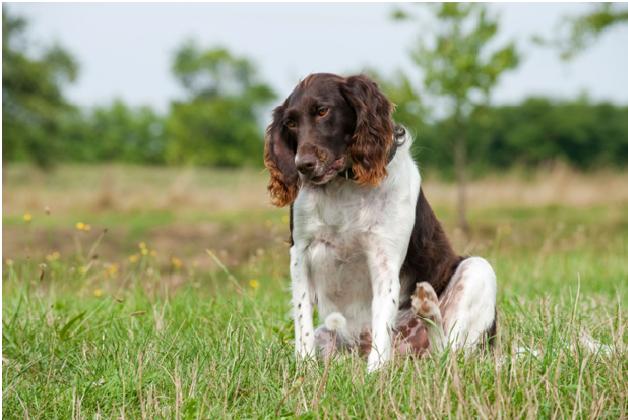Ticks have long been a major concern for dog owners, and rightfully so. These blood-sucking pests pose serious health risks to pets, including anemia, Lyme disease, and Rocky Mountain spotted fever. In order to prevent ticks from choosing their dogs as a viable host, many pet owners will take any means necessary to get them off; unfortunately, some of these treatments can be just as harmful to your pet as to the ticks themselves. Following are commonly used tick treatments you should avoid as we enter the spring tick season.
Spot-On Treatments
Spot-on treatments have long been recommended as an effective treatment for ticks, but new research shows these chemicals can be detrimental to your dog's health. In recent years, Health Canada and the EPA have intensified their research on the effects of these treatments due to the recent influx in reported incidents. They noted that adverse reactions can arise through their use, ranging from mild effects such as skin irritation to serious health scares such as seizures. In fact, these findings have arisen such concern, that Health Canada and the EPA are considering whether further restrictions on spot-on treatments are necessary to protect the health of pets.
Sprays
Many homeowners may skip spot-on treatments and go straight for tick sprays that cover the dog's entire coat. Although there are safe versions of this treatment, many contain harmful chemicals that can be dangerous for your dogs if consumed. Dogs may lick the residue off of their body in an attempt to clean themselves, and if there are chemicals in their fur, they may be in danger of being poisoned and falling ill. If you must use a tick spray on your dog, stick to those made with natural ingredients, such as herbal sprays or essential oils. That way you can be rest assured that your pets will be safe even if they lick up the spray after application.
Chemical-Based Shampoos
Bathing your dog is a great way to remove ticks that have become established in their fur, but there are certain shampoos you should avoid. Many of the chemical surfactants found in tick shampoos are petroleum-based and are known carcinogens which can cause cancer in dogs. Instead, stick with herbal shampoos that contain citrus oils, which are just as effective, yet far safer for your pet. A good rule of thumb is to avoid shampoos with ingredient lists that exceed three lines, as well as an extensive list of ingredients you can't pronounce.
Tick Collars

Tick collars are a common remedy used to prevent ticks around a dog's head and neck, but there is a number of negative side effects. First off, if you don't apply the collar properly, it is essentially useless at removing ticks, as the chemicals cannot be effectively absorbed into the dog's skin. Second, some dogs may have an adverse effect to the chemicals in the collars, which can lead to serious reactions and irritation. Lastly, if there are any loose ends on the collar, your dog or other dogs can chew on it and be harmed by the chemicals contained. It is, thus, better to avoid these collars.
Pesticides around the House
In addition to products that are applied directly to your dog's fur and skin, you may also try to eliminate ticks throughout your yard and home. Although effective, it is recommended to avoid the extensive use of pesticides during this treatment process. Leftover chemical residue from pesticides can lead to serious health complications if your dog consumes it. Overuse of these chemicals can also have potentially harmful effects on the environment, including killing beneficial insects that are natural predators to ticks.
Instead, look for natural treatment remedies around your home to treat your tick problem at its source and eliminate the negative side effects.With the overwhelming amount of research coming out on how dangerous chemical-based tick treatments really are, avoiding their use should be your top priority. No matter which treatment you decide to use for ticks, be sure to talk to your veterinarian before applying it to your pet, in order to make sure your dog is kept safe and healthy this spring.
Daniel Mackie, co-owner of Greenleaf Pest Control, is a Toronto pest control expert well-known as an industry go-to guy, an innovator of safe, effective pest control solutions, and is a regular guest on HGTV. Mackie, along with business partner Sandy Costa, were the first pest control professionals in Canada to use detection dogs and thermal remediation for the successful eradication of bed bugs. In his free time, he is an avid gardener.








